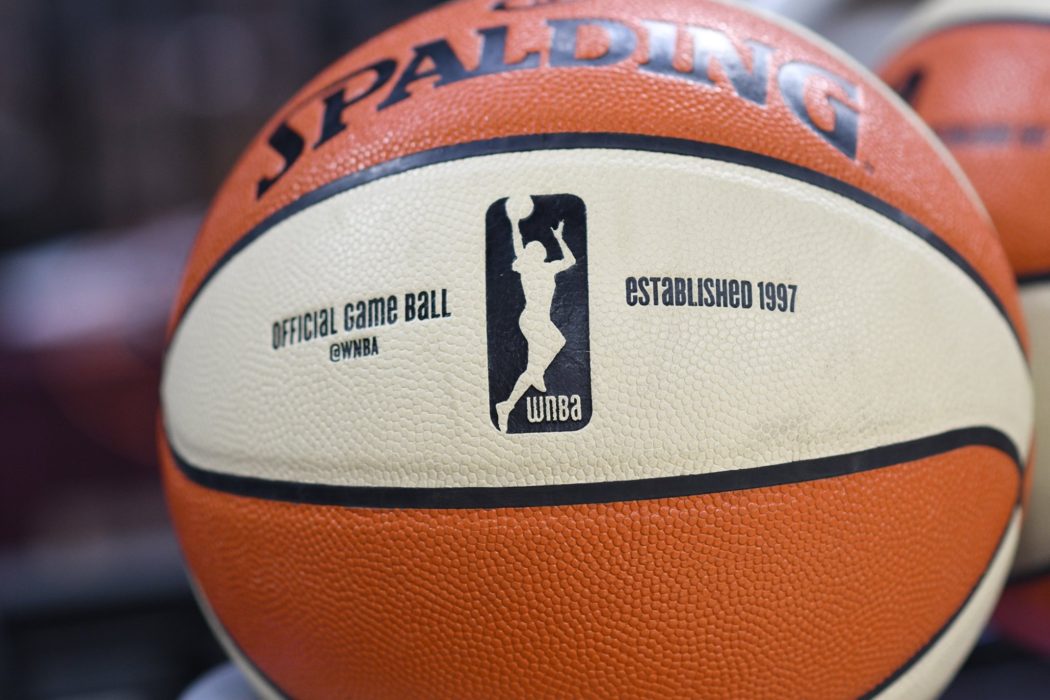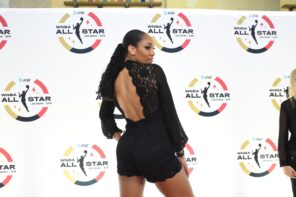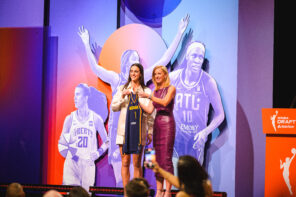It is much harder to continue searching for something if it becomes increasingly more difficult to locate.
That something could be old family pictures, a trophy of your state championship that you may have stowed away in a bin, an iPhone charger port, or the plane ticket of your flight from New York City to Chicago.
That same logic can and does apply to locating sporting events on television and it is something that especially appears to apply when finding women’s sports on television (unless it is tennis).
Take for example the recently concluded Paradise Jam. This was not simply some early-season, off-rip invitational that a couple of top teams, a few average teams and squads that we are probably just getting to know.
Some of the best women’s college basketball programs took part. Among them: Oregon, Baylor, Louisville and South Carolina.
You may have heard of them – particularly the Ducks, Bears and Gamecocks because among those three teams alone are … you know … two of the last three national champions, (including the defending national champions from Waco) and the team that boasts the woman tagged as the best player in the country and likely first overall WNBA draft pick to the New York Liberty.
The field also included Indiana, Oklahoma State, Washington State and UT-Arlington. In fact, entering the tournament, the entire women’s Paradise Jam field was undefeated.
That’s not a typo. #ParadiseJam 🌴 pic.twitter.com/Y8tcncrKSw
— Paradise Jam (@paradisejam) November 26, 2019
All one has to do is take a look at the eight-team field that participated at Paradise Jam at the Virgin Islands and think that it beared a strong resemblance to the field one may see in … say … the Elite Eight. Five top-25 teams, two other Power 5 teams and a Cinderella team from the Sun Belt.
Also – Oregon and Baylor were upset by Louisville and South Carolina, respectively.
We call that Holiday Madness, but it was madness of a different kind that the games were as easy to detect as a four-leaf clover in a wide open field. Shout out to Flo Hoops for broadcasting the games (its coverage was top notch as they have the rights to it), but there is a sizable portion of the population that does not even know what Flo Hoops is.
Ask the casual fan what she or he thinks what Flo Hoops could be and they could say it is a concept for the next Progressive Insurance commercial.
As much as we in the women’s basketball community bemoan the idea of marquee women’s hoops matchups being shoved into the oblivion that can be ESPN3 or ESPN+, I think we may have taken ESPN3 or ESPN+ for such an occasion.
Egregious missteps such as this are sadly commonplace when it comes to making women’s sports more accessible to a bigger segment of the population. Especially when so many women’s games are much more competitive than your Week 13 NFL contest between a Kansas City Chiefs team that has its eye on the Super Bowl and an Oakland Raiders squad that is in the throes of its final days in the East Bay.
It can be easy to sound like broken records when we mention that women’s sports deserve more coverage – and even more like broken records when we mention that women athletes (unlike plenty on the male end of the spectrum) want the increased media attention. But the reason we continue to mention this is because the networks continuously seem to miss out on the gold mine that is relevant coverage of women’s sports.
This is especially evident when considering women’s sports are receiving increased demand. From women’s basketball to women’s hockey to women’s soccer to softball – people want to see women’s sports on television, they want to hear women’s sports on the radio and they want to read about women’s sports online and in newspapers.
It is a simple economic equation – when there is enough demand for something, that demand is supposed to be met with … you guessed it … supply! In this case, the supply is not meeting the demand, even with said demand only on the rise.
Just as WNBA players are no longer simply satisfied with the league’s existence, fans and media around women’s sports (along with the participants and coaches themselves) can no longer be satisfied with the occasional press release touting a “commitment” to women’s sports. We want to see tangible proof of that commitment in the form of more accessibility to the women’s game. There was no reason why Paradise Jam should have been relegated to Flo Hoops like it was.
Remember the classic line from Field of Dreams? If you build it, they will come. And a big reason why they do come is because it is in a central location and not buried in the middle of nowhere.




